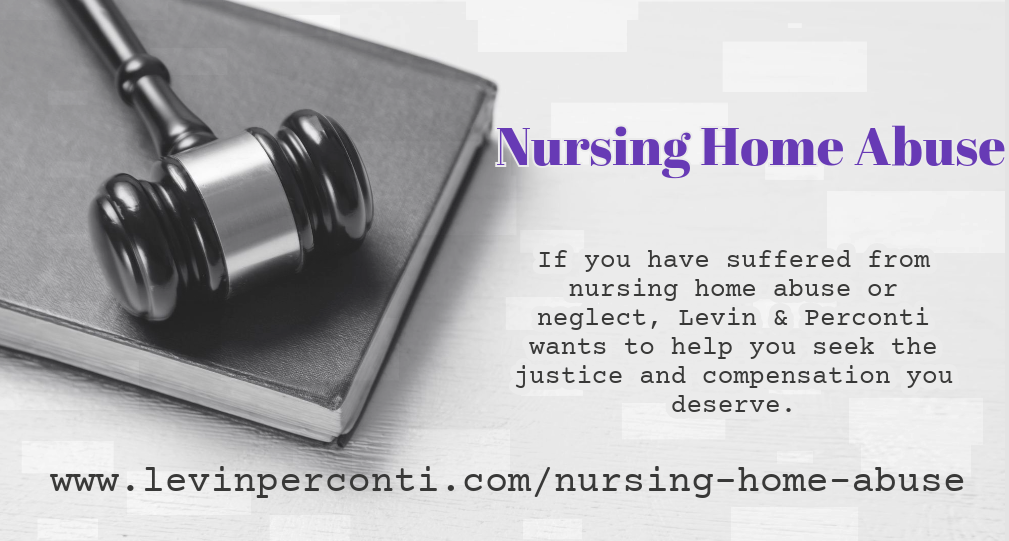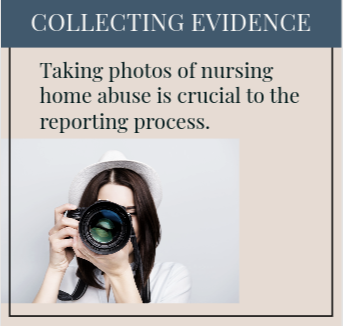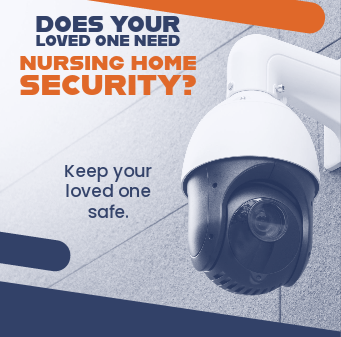|
Use this in-depth guide on nursing home abuse to:
What Are the Signs of Nursing Home Abuse or Neglect?Your loved one should never sustain undocumented or unexplainable injuries at a nursing home. Undiagnosed bruises, cuts, and fractures are major indications of nursing home abuse. The nursing home staff should keep a record of all injuries and always be able to explain how they occurred. Verbal intimidation, public shaming, or social exclusion are all potential forms of nursing home abuse that can lead to changes in the behaviors of your loved one. Some of the most common ways that your loved one may change include increased agitation, fearfulness, and a tendency to want to spend time alone. Other signs to look for when trying to determine whether your loved one may be suffering from nursing home abuse are:
How Can I Choose a Reputable Nursing Home to Reduce the Risk of Abuse?Choosing the right nursing home for your loved one is an important responsibility that you must take seriously. If you want to lessen the likelihood of elder abuse, consider these five tips when choosing a care facility. 1. Studying Several Locations and Taking Tours:
2. Verifying Certifications and Permits:
3. Examining Quality and Inspection Reports:
4. Taking a Look at Residents and Employees:
5. Thinking About the Staff-to-Residents Ratio and Education Levels:
**Bonus tip: Take an active role and speak out for your loved one; this is a bonus tip. If you want to make sure your loved one is happy and well, it's important to pay them frequent visits and talk to them while also being receptive to their worries. Following these guidelines can help you choose a nursing home with confidence, lowering your loved one's risk of abuse or neglect. Always keep in mind that the safety and happiness of the people residing in your care depend on your constant monitoring and advocacy on their behalf. What Kind of Evidence Should I Collect If I Suspect Abuse?It is important to collect proof to back up your suspicions about nursing home mistreatment. Not only can gathering proof help you determine whether abuse is taking place, but it also helps you obtain a nursing home abuse or neglect settlement when taking an abuse case to court. The many kinds of proof you should gather are as follows: Pictures and videos:
Document Everything on Paper:
Clinical Notes:
Verified Testimony:
Items of a Private Nature:
Documentation of Talks:
Case Studies:
Video Recordings from a Surveillance System:
Expert Testimony:
Evidence Required By Law:
Financial Transaction Documentation:
Any Communication with Law Enforcement:
Always maintain confidentiality and act legally while dealing with evidence. Seek the counsel of an attorney with experience in elder abuse if you have any questions while you gather evidence. Are There Any Organizations or Agencies That Can Help in Cases of Nursing Home Abuse?If you suspect nursing home abuse, there are several organizations and agencies that can provide assistance and support. Here are the top five: Adult Protective Services (APS): APS agencies are government entities responsible for investigating reports of elder abuse, neglect, and exploitation. They can intervene in cases of suspected abuse and take steps to protect the victim. Long-Term Care Ombudsman Program: This state- or locally-run program fights for the rights of people living in nursing homes and other long-term care facilities. Ombudsmen can help resolve complaints and concerns related to the quality of care. National Center on Elder Abuse (NCEA): The NCEA is a resource hub for information on elder abuse prevention and intervention. They offer educational materials, research, and guidance on how to recognize and respond to elder abuse. Eldercare Locator: The U.S. Administration on Aging offers this service to help older adults, including those who are experiencing abuse or neglect, connect with local resources and services. Legal Aid and Advocacy Organizations: Many legal aid organizations and advocacy groups specialize in elder law and can provide legal assistance to victims of nursing home abuse. They can help navigate the legal process and advocate for the rights of the victim. Additionally, you may want to consult local resources in your specific area, such as state-specific agencies and advocacy groups, as they may have specialized services and resources tailored to your region. Remember, if you believe immediate intervention is necessary, do not hesitate to contact local law enforcement or emergency services. While you call the proper authorities, they can keep your loved one safe. Can Residents’ Rooms Be Outfitted With Surveillance Cameras for Their Own Protection?The installation of surveillance cameras in nursing home resident rooms is a gray area at best and may be illegal in certain jurisdictions. Some essential things to keep in mind are: Residents' Consent: The installation of a surveillance camera in a resident's room often requires the written permission of the resident and/or the resident's legal guardian. This safeguards the resident's right to privacy. Institutional Rules and Local Regulations: Policies on the use of surveillance cameras vary widely among nursing facilities. Additional regulations in certain jurisdictions may govern consent processes and the use of monitoring technology. Governmental Regulations: The use of surveillance cameras in hospitals and other healthcare institutions may be subject to federal and state regulations. These statutes may address a wide range of issues, including security, consent, and privacy. Concerns About Isolation: It is essential to strike a balance between the resident's right to privacy and the necessity for security. Camera positioning and how you'll store and manage the data you collect are two crucial factors to think about. Transparency and Notification: Everyone, including residents, employees, and guests, should know that there are cameras monitoring the premises. This openness may promote responsibility and discourage harmful actions. Taking a Recording: The act of recording an individual's voice without their permission is illegal in several places. Be sure to research the laws around audio recording in your location. The Bill and Who Should Pay It The resident or their family is typically responsible for purchasing, setting up, and monitoring surveillance equipment. Possible Advantages and Disadvantages: Surveillance cameras have the potential to increase safety and oversight, but they also present important moral and legal concerns. It's crucial to consider the advantages and disadvantages. Counseling with Legal Experts: Always seek the advice of attorneys with experience in elder care and healthcare legislation before placing surveillance cameras in a resident's room. It's important to learn about and comprehend the legal and ethical issues in your area that impact this type of scenario. Get help for nursing home abuse by contacting the Levin & Perconti law firm. To get a blog post like this one to help grow your law firm, visit our Premium Shop to pick out a content marketing package that fits your budget and content needs.
0 Comments
Leave a Reply. |





